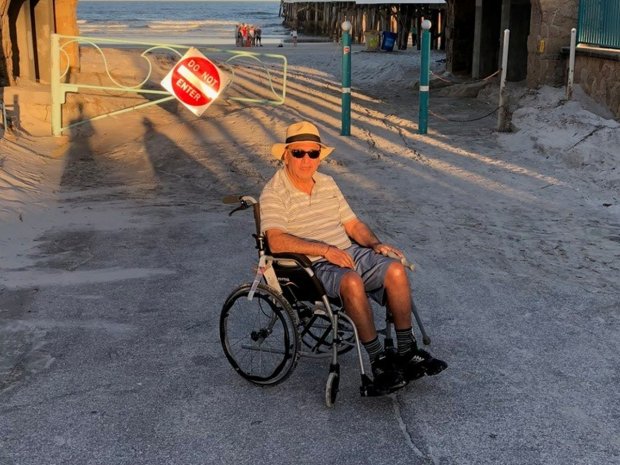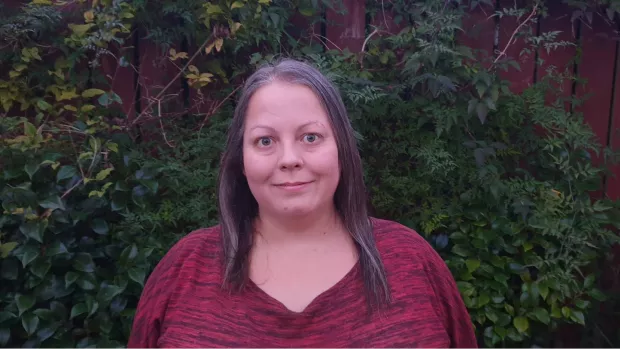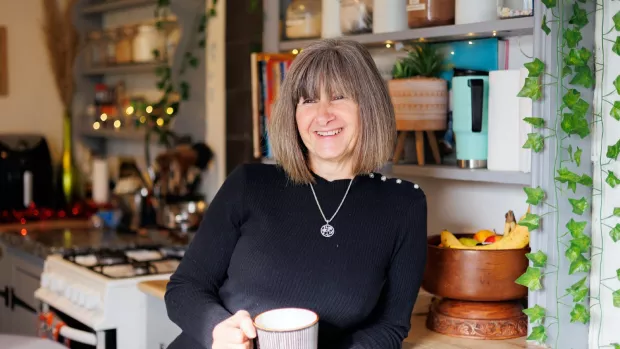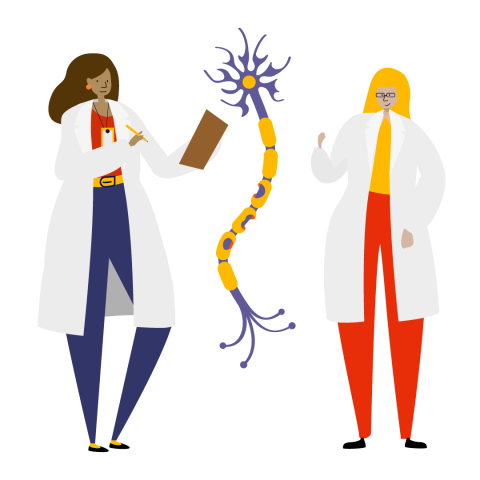
"Research will change things for future generations"
Kanti talks about living with primary progressive MS and his hopes for the future.
I first noticed weakness in my left leg in 2009. My GP referred me to a neurologist. In November of the same year, I had an MRI scan, and then a lumber puncture early the following year. It was then I was told I had primary progressive MS.
Losing independence
I actually didn’t think that much of it at the time – I was walking unaided, though I did have a limp. As time went on though, I needed a cane. Then it was two walking sticks, then a walker, and now I use a wheelchair for long distances.
My mobility is especially impacted by my MS, and my left knee is not so good. My feet are stiff and that doesn’t help with mobility, or with my stability. I do need a walker, or I would probably fall.
Read more about balance, walking and dizziness with MS
I was 65 when I was diagnosed, so I lived a long time without any problems. I feel it would've had a greater impact on my life if it had have come earlier.
I've lost my independence though. I can’t go out without my wife. It affects the sports I can play too. I used to love to play golf, but I can’t play anymore. The loss of mobility and independence have been the biggest things. Mentally though, I am very fit – I’m treasurer for a couple of organisations, including Asian MS.
I do get frustrated. Sometimes you feel as though you can’t do anything without someone’s help. I do drive, but I need help to get in and help to get out at the other end. It’s very difficult.
Trying different treatments
My neurologist prescribed me with gabapentin for my muscle stiffness and spasms, and said to increase it if my symptoms got worse. My main issue was that my left leg was shaking. I now take 600mg in the morning and at night and it doesn’t shake as much. I was also prescribed with fampridine to help speed up my walking, but it’s still the same. I can manage with my walker, but I’m not very fast. Of course I can’t tell what effect it has as I'd need to stop taking it to find out. My walking might slow down without it.
I’ve tried various tablets, including baclofen, but it didn’t really help. I thought ‘how would I know if anything could help progressive MS if I didn’t join in trials?’
So I joined a study (Chariot MS) for the drug cladribine in March at the Royal London Hospital. I took three injections on different days to see if it would slow down progression. I met the professor, but he said it'd be about a year before they know anything. I hope to find out more soon. Every two months I go to the GP and get a blood test and then email the results to the hospital.
I've also gone to an Ayurveda hospital in India each year for three to five weeks since 2000 (apart from during the COVID-19 pandemic). The treatment includes the application of various medicated oils, internal herbal medicine and a bland Ayurvedic vegetation diet. I feel it has helped to stop my symptoms getting worse.
Read more about complementary and alternative therapies for MS
Looking to the future
I’d be over the moon if they come up with a cure, or an effective treatment for progressive MS. I’d be playing golf.
It’s difficult to explain what MS means to people who don’t know. It’s invisible, you can’t see physically what is happening in my body. On the odd occasion someone might ask me about it when they see my walker. But if I am sitting down, for example, they can’t tell.
Some people assume things too. For example, that I can’t drive.
My partner gets frustrated and she thinks I can do more, but I know my limitations. It’s hard to explain what’s going on.
I feel the research focus has generally been on relapsing remitting MS, so there is hope for that. But I don’t know when there'll be effective treatments for progressive MS. We need it to happen, we need the concentration on it. My time is getting on, but for the people following me, it will benefit them.



